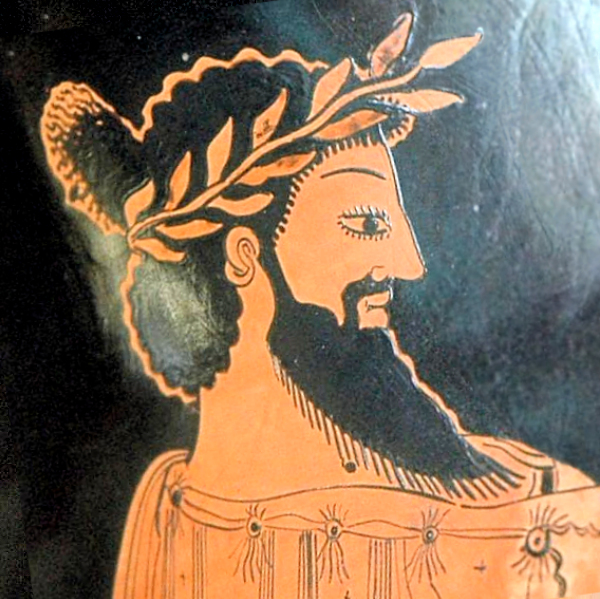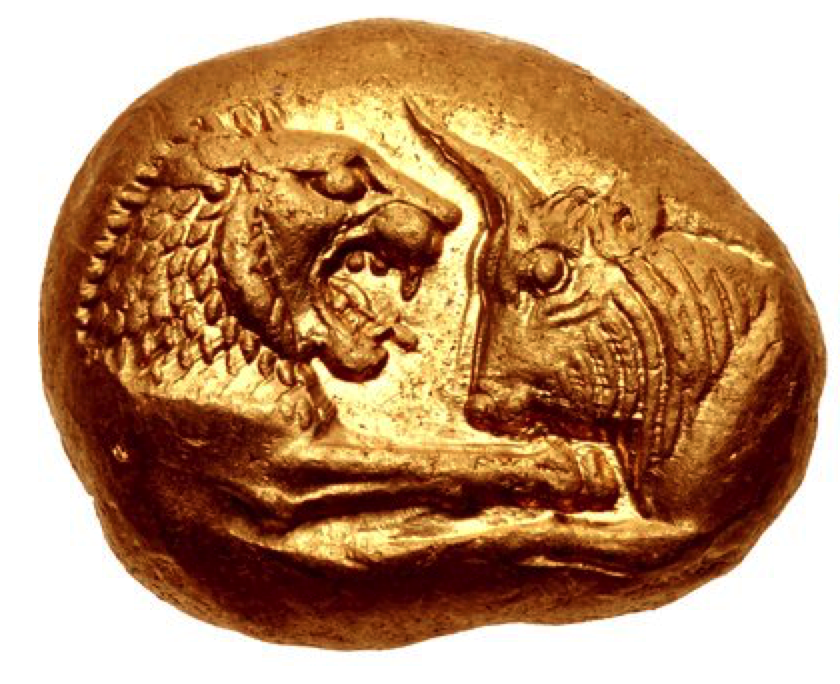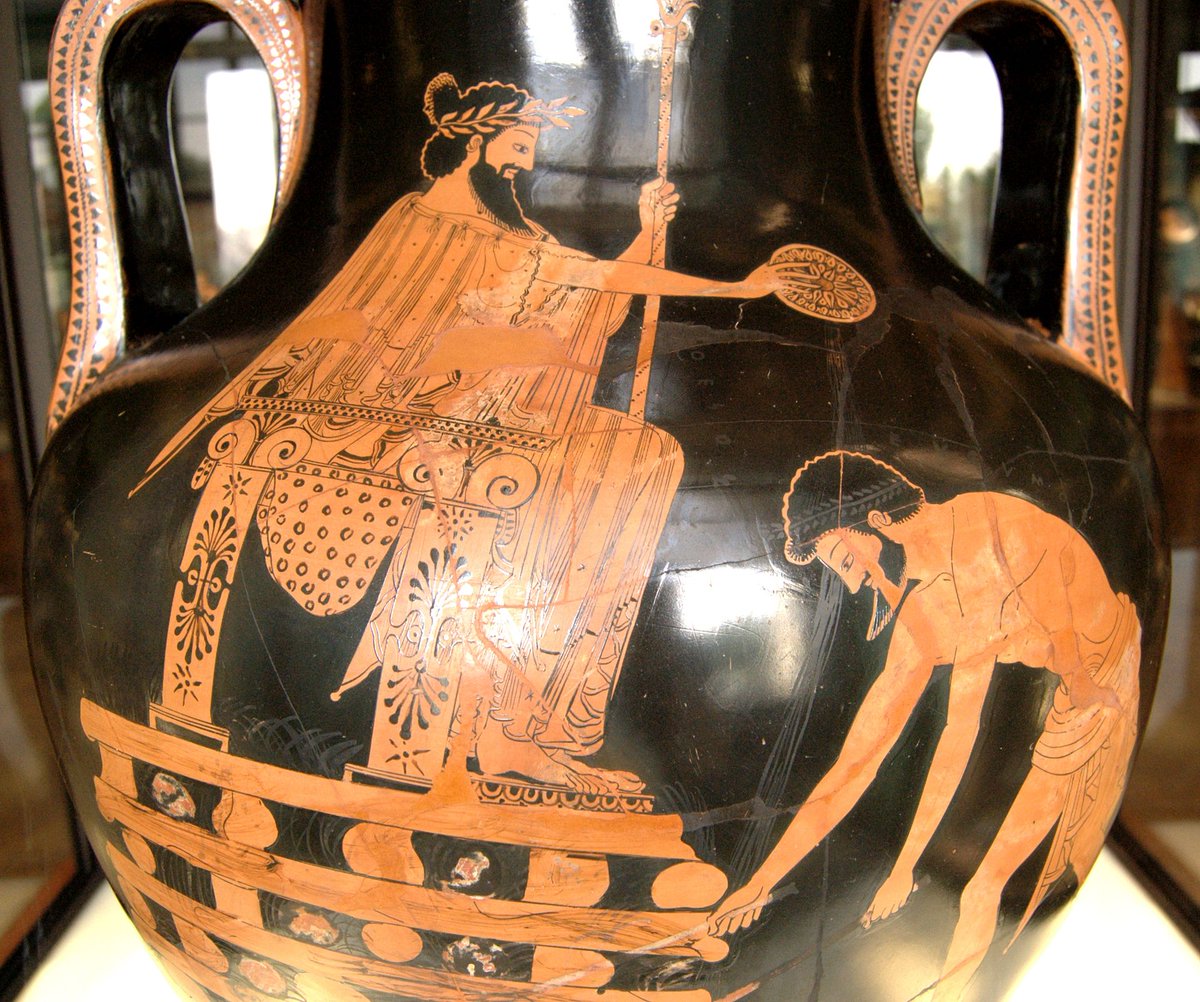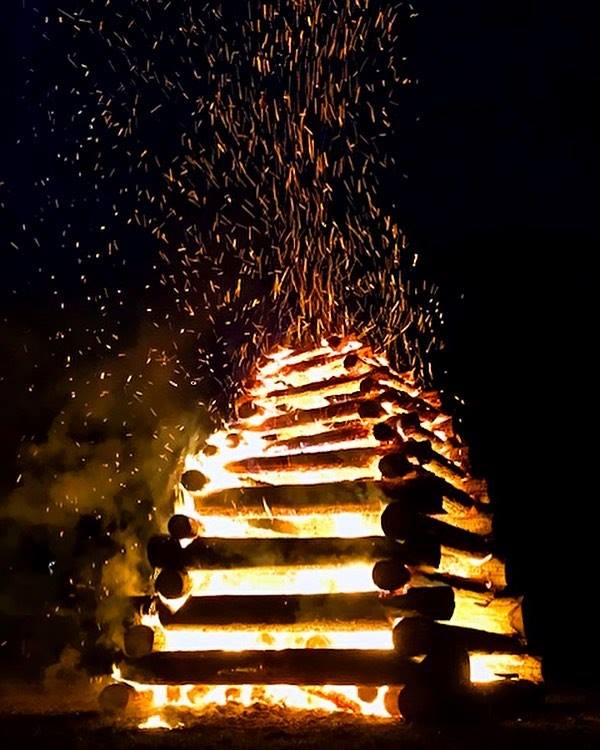Croesus (Krezus)

This is Croesus, the last Lydian king. In 546 BC, he misunderstood the prophecy from Delphi, which said that „If Croesus attacked the Persians, he would destroy a great empire”. Croesus went to war with Persia which ended up with the destruction of his empire…
To Krezus, ostatni król lidyjski. W 546 roku p.n.e. źle zrozumiał proroctwo z Delf, które mówiło, że „Gdyby Krezus zaatakował Persów, zniszczyłby wielkie imperium”. Krezus wyruszył na wojnę z Persją, która zakończyła się zniszczeniem jego imperium …
autor/źródło: Old European Culture ©© tłumaczenie Czesław Białczyński
Apart from being famous for his disastrous prophecy interpreting abilities, Croesus was also famous for minting the earliest known gold coins known as „Croeseids„. They always depicted lion and bull in this pose, and the meaning of this scene is still debated…
Oprócz tego, że był znany ze swoich katastrofalnych zdolności do interpretowania proroctw, Krezus zasłynął również z bicia najwcześniejszych złotych monet, znanych jako „Croeseids”. Zawsze przedstawiały one lwa i byka w tej pozie (jak poniżej), a znaczenie tej sceny jest nadal przedmiotem dyskusji …

Finally, Croesus was also famous for the fact that no one knows what actually happened to him after he was captured by the Persian king Cyrus the Great…
Wreszcie Krezus słynny jest również z tego powodu, że nikt nie wie, co się z nim stało po tym, jak został schwytany przez króla perskiego Cyrusa Wielkiego …
In the version of the story written by Bacchylides, Croesus tried to commit suicide, by burning himself on a pyre. But at the last moment Zeus sent the storm with rain which extinguished the fire, and then Apollo took Croesus to the Hyperboreans where he lived happily ever after
W wersji historii napisanej przez Basilidisa (Bazylidesa) Krezus próbował popełnić samobójstwo, paląc się na stosie. Ale w ostatniej chwili Zeus zesłał burzę z deszczem, która ugasiła pożar, a następnie Apollo zabrał Krezusa do Hyperborejczyków, gdzie żył długo i szczęśliwie.

In the version written by Herodotus, Cyrus captured Croesus and ordered for him to be burned to death on a pyre. But at the last moment, Croesus was saved from death by Apollo who sent a violent storm with rain which extinguished the flames. Cyrus then made Croesus his advisor..
W wersji napisanej przez Herodota Cyrus schwytał Krezusa i nakazał spalić go na stosie. Ale w ostatniej chwili Krezusa uratował przed śmiercią Apollo, który wysłał gwałtowną burzę z deszczem, który ugasił płomienie. Następnie Cyrus uczynił Krezusa swoim doradcą.
The fact that we don’t know how Croesus ended up on the pyre and what happened to him after he was saved, is not that interesting (to me at least). What is interesting (to me at least) is who and how saved him…
Fakt, że nie wiemy, jak Krezus znalazł się na stosie i co się z nim stało po tym, jak został ocalony, nie jest aż tak interesujący (przynajmniej dla mnie). Co jest najciekawsze (przynajmniej dla mnie), to to kto i jak go uratował …
In the Bacchylides’ version, Zeus, the God of Thunder, sends the rainstorm which extinguishes the flames. But in the Herodotus’ version, it is Apollo who sends the rainstorm which extinguishes the flames…A weird thing for a Sun god to do…
W wersji Bazylidesa Zeus, bóg piorunów, zsyła burzę, która gasi płomienie. Ale w wersji Herodota to Apollo zsyła burzę, która gasi płomienie … Dziwna robota jak na boga Słońca…
A lot of people say that Herodotus was „known” to have written crap…But maybe not. Maybe Herodotus just had access to information other Greeks didn’t…
Homer pictures Apollo on the side of the Trojans, fighting against the Achaeans, during the Trojan War. Believe or not the Hittite records, which called Troy „Wilusa”, identify Trojan tutelary deity as a god named Appaliunas (A-ap-pa-li-u-na-aš), usually identified as Apollo…
Wiele osób mówi, że Herodot był „znany” z tego, że pisał bzdury… Ale może nie. Może Herodot miał właśnie dostęp do informacji, których inni Grecy nie mieli …
Homer przedstawia Apolla po stronie Trojan, walczącego z Achajami podczas Wojny Trojańskiej. Wierzcie lub nie wierzcie w zapisy hetyckie, które nazywały Troję „Wilusą”, identyfikują trojańskie bóstwo opiekuńcze jako boga o imieniu Appaliunas (A-ap-pa-li-u-na-aš), zwykle identyfikowanego jako Apollo …
Homer przedstawia Apolla po stronie Trojan, walczącego z Achajami podczas Wojny Trojańskiej. Wierzcie lub nie wierzcie w zapisy hetyckie, które nazywały Troję „Wilusą”, identyfikują trojańskie bóstwo opiekuńcze jako boga o imieniu Appaliunas (A-ap-pa-li-u-na-aš), zwykle identyfikowanego jako Apollo …
Now there is a recently translated Hittite document which talks about a peace contract made between Hittite king Muwatalli and Wilusa king Alaksandu…The kings swear not to break the contract and list their deities as witnesses…
And in that document, one of three gods guaranteeing the terms of the treaty on the side of Alaksandu is A-ap-pa-li-u-na-aš who was described as the „Storm-god of the Army”…
Well, I guess, a storm god could easily send a rain storm to extinguish the flames of the Croesus’ pyre…Right?
Od niedawna dysponujemy przetłumaczonym dokumentem hetyckim, który mówi o umowie pokojowej zawartej między hetyckim królem Muwatallim a królem Wilusy Alaksandu … Królowie przysięgają, że nie zerwą umowy przywołując jako świadków swoich bogów …
W tym dokumencie jednym z trzech bogów gwarantujących warunki traktatu po stronie Alaksandu jest A-ap-pa-li-u-na-aš, który został opisany jako „Bóg-Burzy i Wojska” …
Cóż, myślę, że bóg burzy mógłby z łatwością wysłać nawałnicę deszczową, aby ugasić płomienie stosu Krezusa… Czyż nie?
W tym dokumencie jednym z trzech bogów gwarantujących warunki traktatu po stronie Alaksandu jest A-ap-pa-li-u-na-aš, który został opisany jako „Bóg-Burzy i Wojska” …
Cóż, myślę, że bóg burzy mógłby z łatwością wysłać nawałnicę deszczową, aby ugasić płomienie stosu Krezusa… Czyż nie?
You know how you always wandered (well I did anyway) why Greeks were so afraid of lyre playing Apolo? They weren’t. They were afraid of A-ap-pa-li-u-na-aš…
The same way Serbs were afraid of Sveti Ilija Gromovnik (St Elijah the Thunderer), The Thundering Sun. Serbs celebrate him at the end of summer and beginning of autumn. The moment when summer (represented by a bull) ends and autumn (represented by a lion) begins. Lion and bull???
Wiesz, jeśli kiedyś odbywałeś wędrówkę (no cóż, ja wiem tak czy inaczej), z jakiefgo powodu Grecy tak bardzo bali się Grającej Liry Apolla? Czego sie balii? Bali się A-ap-pa-li-u-na-aša …
W ten sam sposób Serbowie bali się Sveti Iliji Gromovnika (św. Eliasza Gromowładcy), Grzmiacego Słońca. Serbowie świętują go pod koniec lata i na początku jesieni. Moment, w którym kończy się lato (reprezentowane przez Byka) i zaczyna się jesień (reprezentowana przez Lwa). Lew i Byk ??? [komentarz: mowa jest tutaj o Górowaniu/Przełomie Lata między 31 lipca a 6 sierpnia. CB]
W ten sam sposób Serbowie bali się Sveti Iliji Gromovnika (św. Eliasza Gromowładcy), Grzmiacego Słońca. Serbowie świętują go pod koniec lata i na początku jesieni. Moment, w którym kończy się lato (reprezentowane przez Byka) i zaczyna się jesień (reprezentowana przez Lwa). Lew i Byk ??? [komentarz: mowa jest tutaj o Górowaniu/Przełomie Lata między 31 lipca a 6 sierpnia. CB]
In Serbian folklore, St Elijah is a weird character indeed. He is both the sun god (Helios, Veles) and storm god (Zeus, Perun)…Like A-ap-pa-li-u-na-aš??? I talked about St Elijah in my article „Thundering sun god„
W serbskim folklorze św. Eliasz jest rzeczywiście dziwną postacią. Jest zarówno bogiem słońca (Helios, Veles), jak i bogiem burzy (Zeus, Perun) … Jak A-ap-pa-li-u-na-aš ??? O św. Eliaszu mówiłem w artykule „Grzmiący bóg słońca”
He gets so angry every year around his pattern day, 2nd of August, the hottest part of the year, called in the Balkans „Kresovi, Krijesovi” (fires), that he „wants to burn the world to cinder”. Just like any real scary sun god would do…
Każdego roku jest taki wściekły dokładnie w okolicach swojego wzorcowego dnia, 2 sierpnia, najgorętszej części roku, nazywanej na Bałkanach „Kresovi, Krijesovi” (Wskrzesy – Pożary), kiedy „chce spalić świat na popiół”. Czyni tak jak zrobiłby to każdy prawdziwy przerażający bóg słońca.
But he doesn’t…His wife Ognjena Marija (Burning Mary, the ever hotter summer earth) calms him down…After St Elijah calms down, his wife turns to Blaga Marija (Mild, Kind Mary, the ever cooler autumn earth)…
And right then, at the end of summer, beginning of autumn, the first autumn rains arrive, the world is saved…By the way, Serbs believed that these rains were brought by St Elijah himself…As any decent thunder god would have done…Hence Elijah (Helios) „The Thunderer” (Zeus)
Ale on tego nie robi … Jego żona Ognjena Marija (Płonąca Maria, coraz gorętsza letnia ziemia) uspokaja go … Po tym, jak święty Eliasz się uspokaja, jego żona zwraca się do Błogiej Mariji (Łagodnej, Marii coraz chłodniejszej Jesiennej Ziemi)…
I właśnie wtedy, pod koniec lata, na początku jesieni, nadchodzą pierwsze jesienne deszcze, świat jest uratowany … Nawiasem mówiąc, Serbowie wierzyli, że te deszcze przyniósł sam św.Eliasz … Jak każdy zrobiłby przyzwoity bóg piorunów … Stąd Elijah (Helios) „The Thunderer” (Zeus) (Gromowładny).
I właśnie wtedy, pod koniec lata, na początku jesieni, nadchodzą pierwsze jesienne deszcze, świat jest uratowany … Nawiasem mówiąc, Serbowie wierzyli, że te deszcze przyniósł sam św.Eliasz … Jak każdy zrobiłby przyzwoity bóg piorunów … Stąd Elijah (Helios) „The Thunderer” (Zeus) (Gromowładny).
In Serbian the expression „On vedri i oblači” means „he rules”, „he has absolute control, absolute power”. Literally this expression means „he makes the sky clear and cloudy”…
Originally the all powerful one was the Sky God…I talked about this in my article „The power of the thunder giant„
Was the original Apollo, „A-ap-pa-li-u-na-aš”, before Greeks borrowed him from the Anatolians, one such god? The sun god + storm god = scary MF who can destroy your crops, dry out your wells, flood your houses, kill you with fire and lightning and disease? I believe so…
W języku serbskim wyrażenie „On vedri i oblači” oznacza „on rządzi”, „ma absolutną kontrolę, absolutną władzę”. Dosłownie to wyrażenie oznacza „on sprawia, że niebo jest czyste lub zachmurzone” …
Pierwotnie wszechmocny był Bogiem Nieba… Mówiłem o tym w moim artykule „Moc giganta piorunów”
Czy oryginalny Apollo, „A-ap-pa-li-u-na-aš”, zanim Grecy pożyczyli go od Anatolian, był jednym z takich bogów? Bóg słońca + bóg burzy = przerażający MF, który może zniszczyć twoje plony, osuszyć twoje studnie, zalać twoje domy, zabić cię ogniem, piorunami i chorobami? Tak, wydaje mi się że tak…
Pierwotnie wszechmocny był Bogiem Nieba… Mówiłem o tym w moim artykule „Moc giganta piorunów”
Czy oryginalny Apollo, „A-ap-pa-li-u-na-aš”, zanim Grecy pożyczyli go od Anatolian, był jednym z takich bogów? Bóg słońca + bóg burzy = przerażający MF, który może zniszczyć twoje plony, osuszyć twoje studnie, zalać twoje domy, zabić cię ogniem, piorunami i chorobami? Tak, wydaje mi się że tak…
Finally, did you know that apparently no one knows what Croesus’s name means??? Croesus comes from Latin Croesus, from Greek Kroîsos (the name has no further etymology)…
As i said he was famous for his gold, and for the pyre…Now Ancient Greek word for gold was χρυσός (kʰryː.sós)…Was this the root of his name? Golden king? Just misspelled???
At the same time Slavic word Kres, Krijes, Kris means „fire” but also „ritual summer solstice bonfire” representing the sun’s fire…
Wreszcie, czy wiesz, że najwyraźniej nikt nie wie, co oznacza imię Krezus??? Croesus pochodzi od łacińskiego Croesus, od greckiego Kroîsos (nazwa nie ma dalszej etymologii) …
Jak powiedziałem, słynął ze swojego złota i stosu … Teraz – starożytne greckie słowo oznaczające złoto brzmiało χρυσός (kʰryː.sós) … Czy to był rdzeń jego imienia? Złoty król? Właśnie błędnie napisano ???
Równocześnie słowiańskie słowo Kres, Krijes, Kris oznacza „ogień”, ale także „rytualne ognisko przesilenia letniego” reprezentujące ogień Słońca.
Jak powiedziałem, słynął ze swojego złota i stosu … Teraz – starożytne greckie słowo oznaczające złoto brzmiało χρυσός (kʰryː.sós) … Czy to był rdzeń jego imienia? Złoty król? Właśnie błędnie napisano ???
Równocześnie słowiańskie słowo Kres, Krijes, Kris oznacza „ogień”, ale także „rytualne ognisko przesilenia letniego” reprezentujące ogień Słońca.

Looks very much like Croesus’s pyre…And sounds very much like Croesus…Probably a coincidence…
